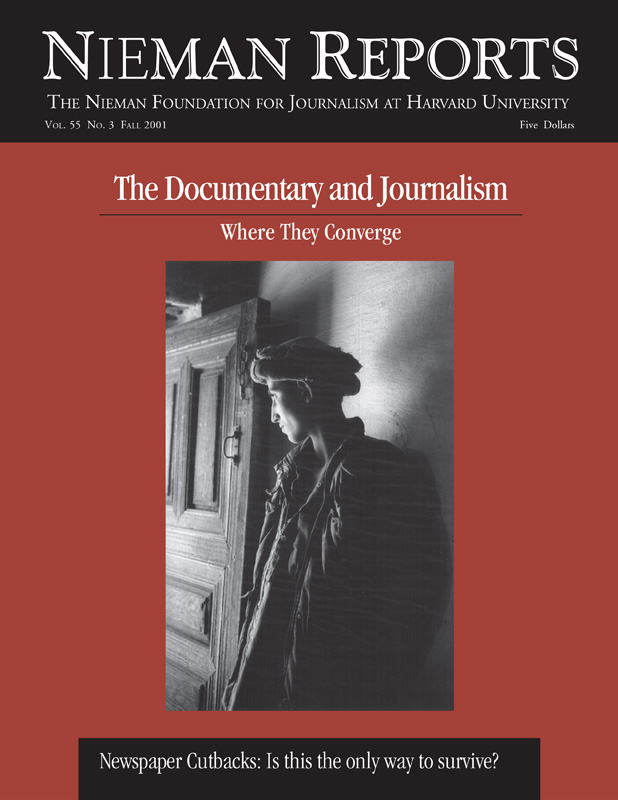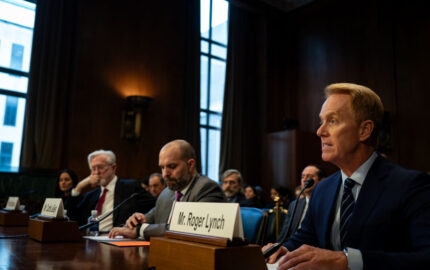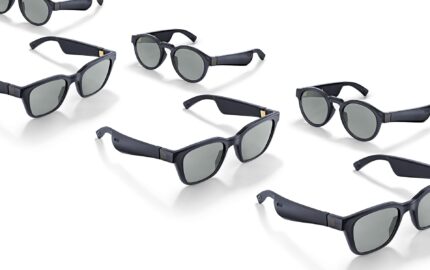
The Documentary and Journalism: Where They Converge
At a time when so much of journalism is quicker, shorter and hyped to grab the public’s presumed short-attention span, the documentary—with its slower pace and meandering moments—is finding receptive audiences in many old places and some new ones as well. In this issue of Nieman Reports, we’ve asked those who document our world to explore how their work converges with ours. How is what they do related to journalism? And what does the documentary form allow its adherents to do in reporting news or exploring issues that other forms of journalism do not?
RELATED ARTICLE
"A Tape Recorder Becomes a Connecting Thread"
- Joshua CutlerWhat made Josh Cutler a great radio diarist was that I never knew what he was going to say. Sometimes he didn’t, either. Josh has Tourette’s syndrome, a neurological disorder that causes involuntary verbal and physical tics. I first met him in 1995 when he was in the 10th grade. I had just received a grant to produce a series called “Teenage Diaries” on National Public Radio [NPR]. The idea was to give tape recorders and microphones to a group of teens around the country and help them report about their own lives.
Josh recorded for more than a year. He brought the tape recorder to school (reluctantly at first), kept an audio journal, and recorded all the sounds of his daily life. Josh documented his tics, he taped himself doing everything from preparing breakfast to making prank phone calls, and he recorded one amazingly intense and honest conversation with his mother that became the centerpiece of his audio diary. All together, he collected more than 40 hours of tape, which was edited into a 15-minute radio documentary for NPR’s “All Things Considered.”
The fact that Josh could not always control what came out of his mouth is a kind of metaphor for this type of documentary journalism. The process of going through hours and hours of raw audio diary tapes is like mining for gold. Ninety percent is junk, but then every so often there are little magical moments that are completely unexpected. Things emerge about people that, in an interview, I would never have known to even look for.
With all the diarists there comes a point, maybe after the first month of recording, when they get bored with the process. That’s what I’m waiting for. They’re no longer trying to sound like Tom Brokaw. They’re not performing, so they’re less self-conscious. They relax and become themselves. It takes a lot of practice to be natural.
Of course, the key to all documentary journalism is time; spending enough time for people to trust you with their stories, hanging out enough so that you’re there when things happen. By turning the tape recorder into a constant companion, the diarists take this process a step further. It’s like bringing the microphone backstage, to a place where truth and understanding are found not just in words but between words—in the pauses, accents, in the sighs and silences.
Teenagers make good diarists because they have an abundance of time. It’s also an age where people are just beginning to discover themselves and their world. And unlike many adults teenagers simply have an inherent belief that whatever they say is important and people should be listening. When I ask a teenager to carry a tape recorder around for six months, they don’t think I’m crazy.
Radio is the perfect medium for these diary-style documentaries. The equipment is relatively inexpensive and easy to use. A microphone is less intrusive than a video camera so people can be more natural, more themselves. Most importantly, radio is intimate. Great radio sounds as though it’s being whispered right into your ear.
For these reasons, I believe some of the best first-person documentary work is found on the radio. David Isay’s “Ghetto Life 101,” in which two young boys in a Chicago housing project were given tape recorders, and Jay Allison’s on-going “Life Stories” series were both direct inspirations for our “Teenage Diary” series. And during the past five years the public radio show, “This American Life,” has reinvented and re-invigorated the form.
“Radio Diaries” is a small, nonprofit company—me and associate producer, Wendy Dorr. Since Josh’s story aired in 1996, we have produced more than 20 diary-style documentaries for NPR. The “Teenage Diaries” series has included diaries from a teen mom, the daughter of an evangelical minister, a gay teenager, an illegal immigrant, and the running back for an Alabama high-school football team. Other projects have included a 30-minute diary-style documentary from residents of a retirement home and, more recently, we produced “Prison Diaries,” a series of stories from inmates, correctional officers, and a judge.
Diarists have to play two roles, both subject and reporter, and negotiating the two can be tricky. So the rules—my rules, anyway—are different from traditional documentaries. I give each diarist final editorial control over their story. I also pay most of the diarists a small stipend for their work. In this way, the relationship is closer to the model at NPR and other news organizations: The diarist is the reporter and I am the producer—although by the time a diary airs on the radio, my job feels more like that of a midwife.
The “Prison Diaries” series, which aired on NPR in January 2001, was certainly the most difficult project among the diaries that we have undertaken. After spending more than four months trying to gain access to prisons, we found two institutions willing to participate. One was an adult prison in North Carolina for 18-22-year-old inmates. The other was a juvenile facility in Rhode Island. We gave tape recorders to five inmates, four correctional officers, and a juvenile court judge. For six months, the diarists kept audio journals and recorded the sounds and scenes of their lives. At the end of six months, we had 250 hours of tape. Eight or 10 months after that, we had four half-hour documentaries for NPR’s “All Things Considered.”
RELATED ARTICLE
"Using the Web for an Interactive Documentary Project"
- Sue JohnsonAlong with the radio broadcasts, we also teamed up with an innovative online documentary project about the criminal justice system. Called 360degrees.org, it allows visitors on their Web site to enter and move around the diarists’ environments while they listen to their audio diaries.
“Prison Diaries” was the first time inmates have been given tape recorders to document their lives in this way. The series tested the limits of what this form does well but also exemplified how it can fall short. When a topic is so emotional and complicated, the absence of an “official” narrator poses a difficult problem. In choosing inmates, it was important to find diarists who could own up to their crimes and their lives, who could somehow address the skepticism and questions of credibility that listeners would naturally bring to the stories. I also grappled with the issue of empathy, wondering whether our listeners could invest emotionally in the story if they didn’t like the diarist. On the other hand, so much of what happens in prison is normally out of our reach, and this method allowed listeners unprecedented access. We wanted to document a side of prison life that people rarely hear—including the quiet, intimate sounds, and not just the traditional slamming of cell doors.
RELATED ARTICLE
"'It was just me and the recorder.'"
- Cristel“Prison Diaries” was also challenging for the diarists. One thing correctional officers and inmates share is they have to always maintain their game face. Honest, vulnerable moments are hard to come by. Yet what many of the diarists appreciated about the project was the opportunity to let their guard down. One inmate later said he had never in his life talked to anyone the way he talked to the tape recorder. Buried in those 250 hours of tape from prison are many intimate and magical moments. On one cassette, Cristel, an 18-year-old girl incarcerated at the Rhode Island Training School was recording late one night when she heard a faint knock from the wall of the cell next door. It was a 13-year-old girl who had just recently been locked up. Neither of the girls could sleep, so for 10 minutes they sent each other syncopated rhythms back and forth between the cell walls. After a while the knocking stopped. Then Cristel picked up the tape recorder, walked over to her window and brought the microphone close to her mouth.
To hear Cristel speaking quietly into a tape recorder late at night, it’s almost possible to enter into her world, to imagine ourselves there behind the microphone. What radio diaries can do well is to give us all glimpses into a different reality and to document the moments of lives that can’t be told except by those who live them.
Joe Richman is the producer of the “Radio Diaries” series on National Public Radio. He is also an adjunct professor at the Columbia University Graduae School of Journalism. Radio Diaries Inc., a nonprofit production company in New York City, recently published a guide to making radio diaries, the Teen Reporter Handbook, available for sale and on their Web site: www.radiodiaries.org.
"A Tape Recorder Becomes a Connecting Thread"
- Joshua CutlerWhat made Josh Cutler a great radio diarist was that I never knew what he was going to say. Sometimes he didn’t, either. Josh has Tourette’s syndrome, a neurological disorder that causes involuntary verbal and physical tics. I first met him in 1995 when he was in the 10th grade. I had just received a grant to produce a series called “Teenage Diaries” on National Public Radio [NPR]. The idea was to give tape recorders and microphones to a group of teens around the country and help them report about their own lives.
Josh recorded for more than a year. He brought the tape recorder to school (reluctantly at first), kept an audio journal, and recorded all the sounds of his daily life. Josh documented his tics, he taped himself doing everything from preparing breakfast to making prank phone calls, and he recorded one amazingly intense and honest conversation with his mother that became the centerpiece of his audio diary. All together, he collected more than 40 hours of tape, which was edited into a 15-minute radio documentary for NPR’s “All Things Considered.”
The fact that Josh could not always control what came out of his mouth is a kind of metaphor for this type of documentary journalism. The process of going through hours and hours of raw audio diary tapes is like mining for gold. Ninety percent is junk, but then every so often there are little magical moments that are completely unexpected. Things emerge about people that, in an interview, I would never have known to even look for.
With all the diarists there comes a point, maybe after the first month of recording, when they get bored with the process. That’s what I’m waiting for. They’re no longer trying to sound like Tom Brokaw. They’re not performing, so they’re less self-conscious. They relax and become themselves. It takes a lot of practice to be natural.
Of course, the key to all documentary journalism is time; spending enough time for people to trust you with their stories, hanging out enough so that you’re there when things happen. By turning the tape recorder into a constant companion, the diarists take this process a step further. It’s like bringing the microphone backstage, to a place where truth and understanding are found not just in words but between words—in the pauses, accents, in the sighs and silences.
Teenagers make good diarists because they have an abundance of time. It’s also an age where people are just beginning to discover themselves and their world. And unlike many adults teenagers simply have an inherent belief that whatever they say is important and people should be listening. When I ask a teenager to carry a tape recorder around for six months, they don’t think I’m crazy.
Radio is the perfect medium for these diary-style documentaries. The equipment is relatively inexpensive and easy to use. A microphone is less intrusive than a video camera so people can be more natural, more themselves. Most importantly, radio is intimate. Great radio sounds as though it’s being whispered right into your ear.
For these reasons, I believe some of the best first-person documentary work is found on the radio. David Isay’s “Ghetto Life 101,” in which two young boys in a Chicago housing project were given tape recorders, and Jay Allison’s on-going “Life Stories” series were both direct inspirations for our “Teenage Diary” series. And during the past five years the public radio show, “This American Life,” has reinvented and re-invigorated the form.
“Radio Diaries” is a small, nonprofit company—me and associate producer, Wendy Dorr. Since Josh’s story aired in 1996, we have produced more than 20 diary-style documentaries for NPR. The “Teenage Diaries” series has included diaries from a teen mom, the daughter of an evangelical minister, a gay teenager, an illegal immigrant, and the running back for an Alabama high-school football team. Other projects have included a 30-minute diary-style documentary from residents of a retirement home and, more recently, we produced “Prison Diaries,” a series of stories from inmates, correctional officers, and a judge.
Diarists have to play two roles, both subject and reporter, and negotiating the two can be tricky. So the rules—my rules, anyway—are different from traditional documentaries. I give each diarist final editorial control over their story. I also pay most of the diarists a small stipend for their work. In this way, the relationship is closer to the model at NPR and other news organizations: The diarist is the reporter and I am the producer—although by the time a diary airs on the radio, my job feels more like that of a midwife.
The “Prison Diaries” series, which aired on NPR in January 2001, was certainly the most difficult project among the diaries that we have undertaken. After spending more than four months trying to gain access to prisons, we found two institutions willing to participate. One was an adult prison in North Carolina for 18-22-year-old inmates. The other was a juvenile facility in Rhode Island. We gave tape recorders to five inmates, four correctional officers, and a juvenile court judge. For six months, the diarists kept audio journals and recorded the sounds and scenes of their lives. At the end of six months, we had 250 hours of tape. Eight or 10 months after that, we had four half-hour documentaries for NPR’s “All Things Considered.”
RELATED ARTICLE
"Using the Web for an Interactive Documentary Project"
- Sue JohnsonAlong with the radio broadcasts, we also teamed up with an innovative online documentary project about the criminal justice system. Called 360degrees.org, it allows visitors on their Web site to enter and move around the diarists’ environments while they listen to their audio diaries.
“Prison Diaries” was the first time inmates have been given tape recorders to document their lives in this way. The series tested the limits of what this form does well but also exemplified how it can fall short. When a topic is so emotional and complicated, the absence of an “official” narrator poses a difficult problem. In choosing inmates, it was important to find diarists who could own up to their crimes and their lives, who could somehow address the skepticism and questions of credibility that listeners would naturally bring to the stories. I also grappled with the issue of empathy, wondering whether our listeners could invest emotionally in the story if they didn’t like the diarist. On the other hand, so much of what happens in prison is normally out of our reach, and this method allowed listeners unprecedented access. We wanted to document a side of prison life that people rarely hear—including the quiet, intimate sounds, and not just the traditional slamming of cell doors.
RELATED ARTICLE
"'It was just me and the recorder.'"
- Cristel“Prison Diaries” was also challenging for the diarists. One thing correctional officers and inmates share is they have to always maintain their game face. Honest, vulnerable moments are hard to come by. Yet what many of the diarists appreciated about the project was the opportunity to let their guard down. One inmate later said he had never in his life talked to anyone the way he talked to the tape recorder. Buried in those 250 hours of tape from prison are many intimate and magical moments. On one cassette, Cristel, an 18-year-old girl incarcerated at the Rhode Island Training School was recording late one night when she heard a faint knock from the wall of the cell next door. It was a 13-year-old girl who had just recently been locked up. Neither of the girls could sleep, so for 10 minutes they sent each other syncopated rhythms back and forth between the cell walls. After a while the knocking stopped. Then Cristel picked up the tape recorder, walked over to her window and brought the microphone close to her mouth.
To hear Cristel speaking quietly into a tape recorder late at night, it’s almost possible to enter into her world, to imagine ourselves there behind the microphone. What radio diaries can do well is to give us all glimpses into a different reality and to document the moments of lives that can’t be told except by those who live them.
Joe Richman is the producer of the “Radio Diaries” series on National Public Radio. He is also an adjunct professor at the Columbia University Graduae School of Journalism. Radio Diaries Inc., a nonprofit production company in New York City, recently published a guide to making radio diaries, the Teen Reporter Handbook, available for sale and on their Web site: www.radiodiaries.org.


